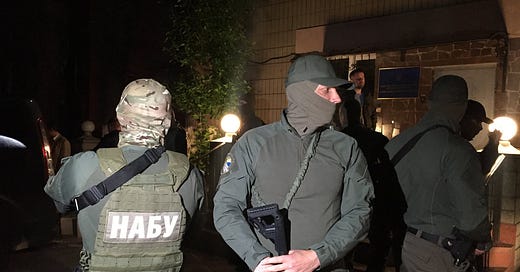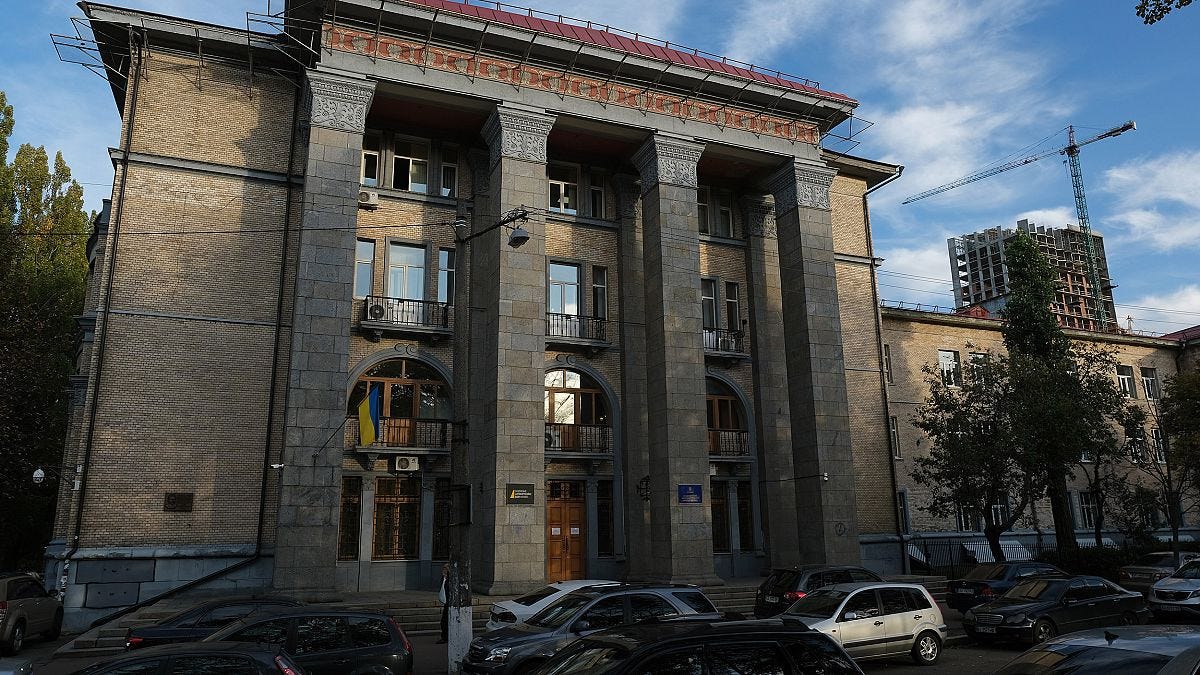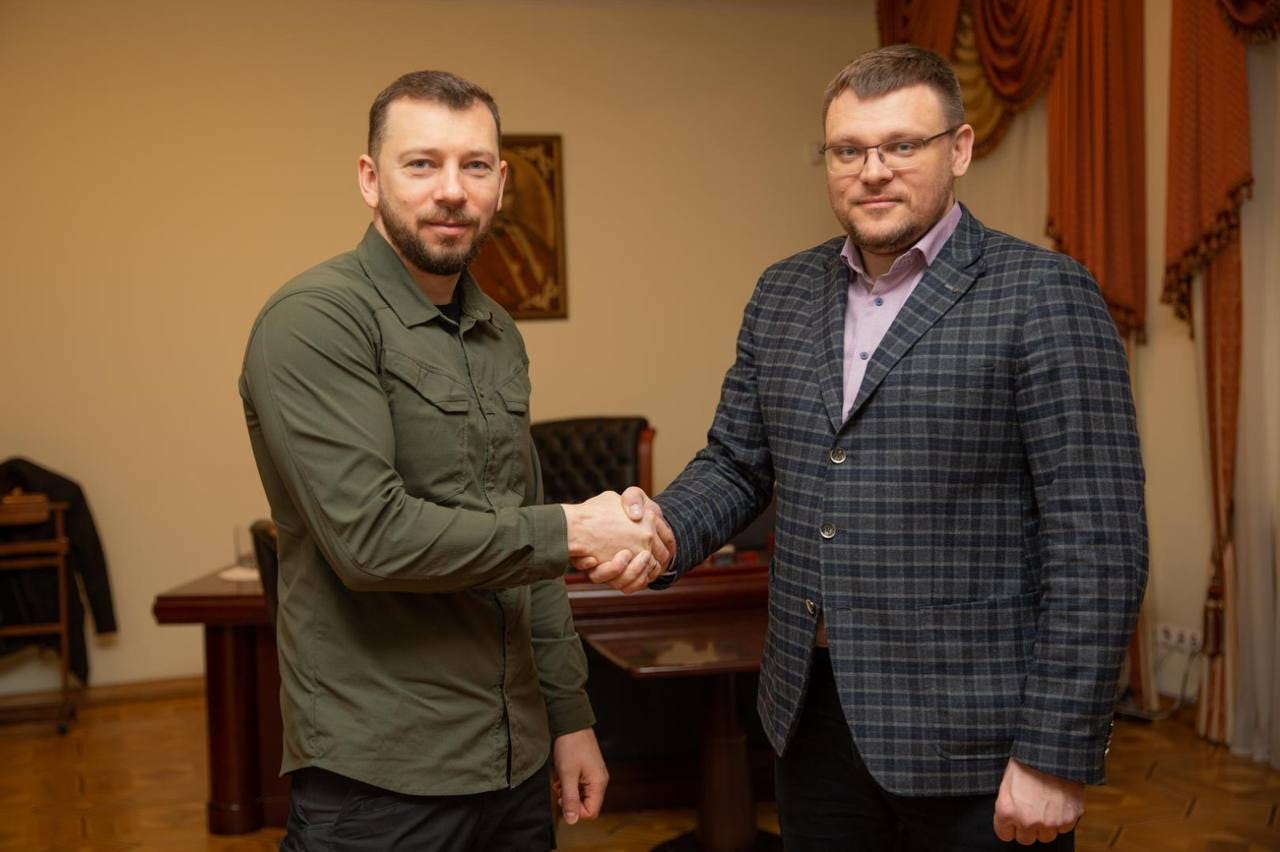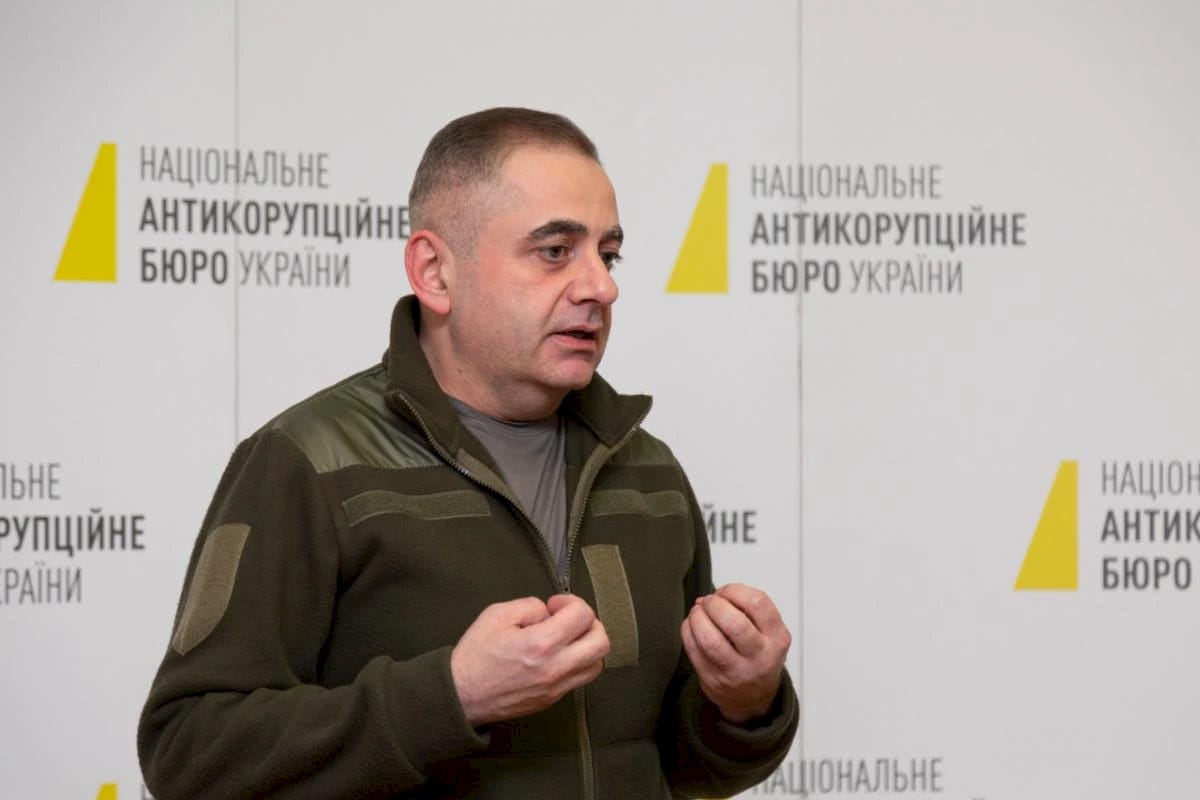Introduction to the ‘Sorosites’
Sorosites - the accustomed term in Ukraine for the network of journalists, NGOs and organizations that define themselves in terms of ‘anti-corruption’ and whose patron is the US embassy and/or George Soros’ International Renaissance Foundation.
For instance, one of the premier anti-corruption agencies, the Anti-Corruption Action Centre (AntAC), lists its funding sources as follows:
AntAC also got involved in the Manafort-‘RussiaGate’ scandal. An article from the Hill on the matter also went into their funding sources in more detail (note that the link to the donor disclosure no longer works):
One key U.S. partner was AntAC, which received 59 percent (or $1 million) of its nearly $1.7 million budget since 2012 from U.S. budgets tied to State and Justice, and nearly $290,000 from Soros’s International Renaissance Foundation, according to the group’s donor disclosure records.
When it comes to politics in Ukraine, these are the proverbial canaries in the goldmine. It is they who act as the main lever of US political influence within Ukraine. Which is why I’ve dedicated a great deal of articles to their relationship with Bankova (the President’s Office).
Of course, the mere fact of tensions between them and the government is hardly unique, and is rather a constant. For a variety of fairly obvious reasons, their stated goal of ‘defeating corruption’ is patently impossible, which hence means they will always have reason to feud with the government in power. Which makes good imperial sense - you always need to keep your quislings on their toes, or they’ll get too comfortable and have too much of their own initiative.
But there is no doubt that the US would never stand by idly if the Ukrainian government were to try to entirely eradicate these canaries. After all, that’s precisely what Russia and Belarus did. It’s what Georgia is doing now, hence requiring US sanctions.
For about a year since February 2022, relations between the Sorosites and Bankova ceased being openly hostile. But the Sorosites continued their struggle, notably through pushing corruption charges against heavyweights of Zelensky’s Servant of the People party like Odessa mayor Trukhanov in late 2022 and 2023.
With societal morale increasingly collapsing since the failure of the 2023 counter-offensive, the anti-corruption networks have felt freer to go on the offensive against Bankova. But in conditions of shrinking US aid, Bankova (the president’s office) has felt less responsibility in protecting these local allies of the state department. Hence its ever-more open struggle against them, which I wrote about here and here.
SAPO and NABU
Today’s post will go into dramatic events involving two of the premier anti-corruption agencies - NABU (National Anti-Corruption Bureau) and SAPO (Specialized Anti-Corruption Prosecutor’s Office). Both were set up in 2015 and are held up as some of the greatest achievements of the 2014 ‘revolution of dignity’.
In theory, they are meant to cooperate. But in reality, this unity can be threatened by the powerful clan interests that rule the country. But before we get into that, some more context is necessary.
SAPO and NABU have always been a barometer of western influence in Ukraine. This has often taken the form of endless conflicts over personnel appointments in both agencies. The western embassies imply, and their local Sorosite partners say out loud, that the Ukrainian government is trying to torpedo the effectiveness of the agencies.
For instance, in 2022 the G7 and Ursula Von Der Leyen urged Ukraine to choose a new head of SAPO as a condition for EU integration. Oleksandr Klimenko, a Sorosite favorite and darling of the west, had been elected back in December 2021, but the Zelensky government only allowed him to assume leadership of SAPO after endless western prodding in late July 2022.
The Golyk Case
The newest SAPO-NABU conflict erupted into public eyes on May 22, when SAPO and police conducted a search on the NABU building. SAP accused NABU of having leaked information regarding the corruption case against Yury Golyk, a businessman in charge of Zelensky’s infamous ‘big build’ project. To understand the SAPO-NABU conflict, some context on the Golyk case is necessary.
The ‘big build’ infrastructure project has always been one of the favorite targets of anti-corruption activists, often as a way to get at the president and his entourage. In October 2023, the anti-corruption publication Bihus (I wrote about other conflicts it has had with the government here) published information that Golyk was still regularly present at the President’s Office.

Also implicated in the Golyk saga were Bankova heavyweights like former deputy head of the President’s Office Kyryllo Tymoshenko and head of the Dnepropetrovsk Regional Military Administration Reznichenko.
NABU had already raided Golyk for corruption in road construction several times, including in early May 2023. This came after a summer 2022 investigation by Our Money into Golyk’s winning of a 1.5 billion hryvnia infrastructure tender.
NABU and SAPO opened a criminal investigation against Golyk soon after the Our Money investigation on the basis of Article 364 (abuse of power or official position) and 209 (money laundering). But Golyk would never be actually imprisoned, due to his seemingly invincible capacity at hiding any traces of possible corruption, as described by the Weekly Mirror.
But things took another turn when a NABU detective identified photographs of the NABU investigation on Golyk’s phone. Apparently, they had been trying to eke information out of the heavily encrypted phone for months, and were only able to access its hidden cache files with help from a US government team.
Golyk had been sent these photographs by former government official Georgii Birkadze, in a chat where messages self-deleted after 10 seconds. In other words, Golyk was being fed details of his own investigation by government officials, allowing him to evade charges. The NABU detective informed his superiors of this on April 24. Eventually, NABU leadership informed SAPO of the scandalous photographs.
SAP-NABU conflict
This set the stage for open conflict between SAPO and NABU. On May 22, SAPO officials conducted a search on the NABU premises.
SAPO made the following statement to Ukrainska Pravda:
In response to media inquiries about searches at NABU, we provide the following information.
The SAP oversees the pre-trial investigation conducted by NABU's Internal Control Department under Articles 364 and 387 of the Criminal Code of Ukraine regarding possible criminal offenses committed by Bureau employees.
The proceedings were initiated following an official note from a whistleblower – a NABU employee.
It should be noted that no searches or investigative actions were conducted in NABU premises on the initiative of SAPO prosecutors. The criminal proceedings involved a search conducted solely at the residence of a current NABU employee – a detective from one of the departments.
The National Police of Ukraine were involved in the search due to the lack of resources in NABU’s Internal Control Department. The officers of the National Police of Ukraine do not have and could not have had any access to the investigation materials of the National Bureau.
According to SAP, they were only interested in one NABU detective - Valery Polyuga - for his role in leaking information before Golyk’s trial. According to the Weekly Mirror, Valery is an honorable detective who is being made into a scapegoat by NABU leadership
The next day, on May 23, NABU struck back: We inform our colleagues at the SAPO: NABU has had and continues to have sufficient resources to conduct investigations. NABU always ensures an independent, impartial, and comprehensive pre-trial investigation and expects the same approach from our main partners.
On the same day, a NABU source denied to strana that any SAP raid on its personnel had taken place. The source stated the following:
"This is a deliberate misinformation from the head of the Specialized Anti-Corruption Prosecutor's Office (SAPO), Alexander Klimenko, who is playing out the agenda of so-called 'activists' represented by Shabunin and company. After the departure of the head of the main detective department, Andrey Kaluzhinsky, and before that Artem Sytnik, they lost their influence on the processes, became isolated from information, stopped influencing the agenda, and are now trying to seize any opportunity to discredit the leadership," the source close to the NABU leadership explained.
According to him, Klimenko previously worked closely with Kaluzhinsky and continues to maintain a relationship with him.
On May 24, the NABU director Semen Krivonos removed his first deputy, Gizo Uglava, on the basis of having leaked information.
NABU history
A little bit of context is needed here. SAPO is currently led by Oleksandr Klimenko, hero among the Sorosite community. NABU was once led by friend of Klimenko and fellow Sorosite icon Artem Sytnyk, but he left in 2022. He was replaced by Semen Krivonos, who is disliked by the activists/Sorosites and the western structures that sponsor them.
Then, in September 2023, Andrii Kaluzhinsky, the head detective of the NABU, left his post. Kaluzhinsky had been considered Sytnyk’s right hand man, and was in fact his godfather.
Kaluzhinsky told the Weekly Mirror that he was leaving because he had been mobilized. Strana sources claimed that his departure was because Kaluzhinsky had been protecting Igor Kolomoisky from harsher prosecution in his never-ending court case. The NABU leadership agreed with him that he leave, and use the mobilization story to distract attention.
Kaluzhinsky’s departure was perceived by ‘the activists’ as yet another attack by Bankova on the independence of NABU. On May 20 2024, the Weekly Mirror published an article criticizing the reforms in the NABU detective structure. It argued that these changes were reducing NABU’s institutional independence from the government. A May 29 article on the SAPO-NABU conflict also pointed to post-Kaluzhinsky reforms of the detectives. It highlighted the man in charge of the post-Klimenko detective system - Gizo Uglava, who became the fall guy on May 24.
Weekly Mirror interpretation
The Weekly Mirror/Dzerkalo Tyzhna, a premier ‘Sorosite’ publication, published a long article about the NABU/SAP conflict on May 29. It was written by the chief editor, Inna Vedernikova.
The first notable thing is that it begins by stating that NABU’s leaks were made to benefit the President’s Office. The article also states that the minister of finances Serhii Marchenko, an old associate of Golyk, is slowing down SAPO’s investigation into the NABU leaks.
Furthermore, the article states that the leaks began in 2021. This apparently excludes former director Sytnyk from responsibility for the leaks, since he left NABU soon after. Birds of a feather protect their own. The same paragraph states that Krivonos, the current director, is not responsible for the leaks since he became director after they began.
But in the next section, it accuses Krivonos of not following due protocol and notifying SAPO immediately when they found out about the photos on Golyk’s phone. Though he was informed about the photos by NABU detectives on April 24, he only informed SAPO on May 9. The article also complains that Krivonos made no further investigation into the leaks after May 10. They tie this with the fact that once SAPO made it to the NABU premises, 95% of the materials regarding the Golyk/Reznichenko leaks had been destroyed.
Since the Weekly Mirror is a premiere ‘Sorosite’ publication, it is worth noting their overall judgments:
Trust in NABU today is undermined both at the level of process organization and structure, and at the level of the leadership's response to the red alert from below.
….
Either the anti-corruption block will reach a new level, strong and purified, or due to leaks, we will bury not only the Golyk case, the threads of which lead directly to Bankova, but also the entire anti-corruption block, whose successful operation is a key guarantee for Ukraine's future accession to the EU and the allocation of funds to our country for post-war reconstruction.
Great stakes indeed!
No Sorosite is Safe
Many big figures in the anti-corruption scene took a stand on the NABU-SAPO conflict. Vitaly Shabunin of AntAC and Yury Nikolov of Our Money publicly took the side of SAPO, heaping the head of the NABU with criticism over his supposed covert support of Golyk.
It’s no coincidence that Shabunin and Nikolov have an opinion on the matter - they have been complaining of persecution by the government for months now, which I detailed here and here.
Law and Business reported on June 2 that Shabunin is being investigated for corruption. The head of the Anti-Corruption Centre (AntAC) is accused of driving around Kiev on a Nissan Pathfinder which was purchased on the basis of donations for the AFU. The car was meant to be used in the Donbass.
The case was opened against him by the Shevchenko regional court of Kiev. The old court system is held in contempt by anti-corruption activists, who generally view it as irremediably infested by conservative members of Yanukovych’s ancient regime.
Meanwhile, Sytnyk left his position at the National Agency for the Prevention of Corruption (NAPC) on June 3. Strana sources claim it is part of the SAP-NABU conflict. Telegram channels published his resignation message from the NAPC group chat:
Lately, the new leaders of anti-corruption bodies often decide to change the organizational structure of the institutions they are honored to lead. In doing so, systems that are stable, effective, and have begun to produce significant results are being disrupted and altered. Unfortunately, certain recent events and decisions highlight that the issue of maintaining the independence and professionalism of anti-corruption bodies is particularly relevant.
Some of strana’s sources speculate that Sytnyk’s decision shows the increasing weakness of the pro-western Sorosites, with SAPO’s attack on NABU being relatively unsuccessful, if its aim was to get rid of the hated Krivonos. Others believe that Sytnyk may now make a move to retake control of NABU.
Blinken’s big plan
According to a strana political source on June 8, SAPO’s campaign against NABU and Ermak are all part of a single strategy, coordinated with the Americans, or at least aimed at stirring them to action. Namely, to weaken and punish Zelensky after ignoring western demands by centralizing power with Yermak’s help, removing Kubrakov and other favored figures, which I wrote about in more detail here.
One of the biggest such purges was removal of former deputy of the Office of the President, Andrey Smirnov. He was replaced with a Yermak associate.
The Smirnov case is relevant because he was accused of large-scale corruption by NABU soon after he left his post. On May 29, NABU announced that Smirnov would have to pay a 10 million dollar bail. He is now under a variety of restrictions, among which include the inability to leave Kiev. This is just one of many cases where NABU has been acting in the interests of Yermak in purging the state machine of competitors.
According to strana, Zelensky and his entourage are displeased with attempts by US ambassador Bridget Brinks to protect figures like Shabunin, Kubrakov and Sytnyk:
Zelensky's stance is as follows: 'I communicate directly with the leaders of Western countries, and they do not demand anything of the sort. Therefore, if some demands are made by Western ambassadors and other clerks, and we consider these demands unacceptable, we will ignore them,'" said the source.
Furthermore, if NABU and SAPO act as a single entity under the control of Western structures and influenced by activists, there is a likelihood that in retaliation for 'disobedience,' the anti-corruption structures will start an investigation against Zelensky's circle. Moreover, according to one theory, this is precisely the main goal of the current movements against the leaders of NABU.
Therefore, Bankova is quite satisfied with the conflict between NABU and SAPO, as it diminishes the threat of a coordinated strike from their side
Strana also drew parallels with a similar conflict between NABU and SAPO under Poroshenko’s presidency. Among other things, it was withdrawal of western support for Poroshenko due to his turf wars with the anticorruption community that made his reelection in 2019 impossible. At the moment, such a scenario is irrelevant to Zelensky due to the lack of elections. The US is even less capable of pressuring the Ukrainian government in conditions of shrinking aid, and Zelensky is quite conscious of that, as detailed in my last post ‘US-Zelensky Tensions’.
Shabunin’s quote from several months ago hence comes to mind, responding to government persecution of him and other anticorruption activists:
And so, the President’s Office believes they can go further than their predecessors had the opportunity to. Because when they start to deal with 'investigators' (and other critics), society, preoccupied with war, will not react as sharply. Discrediting investigative journalists and the public sector is exactly for this purpose - preparing the ground. And then there will be three general ways to remove the undesirable:
the adoption of laws similar to the Russian 'foreign agents';
imprisonment through concocted criminal proceedings;
physical elimination in the war,"









Anything Soros is involved in is very bad news for normal citizens of any given country he has an interest in. I would usually call him vermin. But I've cone to the conclusion. He isn't good enough to be labeled as vermin.
Yermak has come off in the last few posts as a regular Sir Humphrey of Yes, Prime Minister fame; loyal to his own position and the state (and I assume, to Zelensky). I'm sure he's using his connections to the West (McFaul being in his sanctions group will forever be funny to me), to re-assure them that he doesn't need these comprador aspirationists. Don't know how this is actually received westward, but I doubt they'd compromise Zelensky in wartime. Could Zelensky use the war to succeed where Yanukovych failed in terms of centralisation? It's not like they gave up on Orban (not really, anyway) or Netanyahu, despite thinking them problematic.